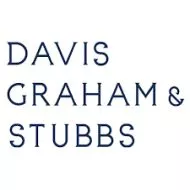SEC/SRO UPDATE: SEC CHARGES LORDSTOWN MOTORS WITH MISLEADING DISCLOSURES; DELAWARE COURT CALLS COMMON MERGER PRACTICES INTO QUESTION; SEC UPDATES ETHICS RULES GOVERNING SECURITIES TRADING BY AGENCY PERSONNEL; SEC ADOPTS AMENDMENTS TO FORM PF
SEC Charges Lordstown Motors with Misleading Disclosures
On February 29, 2024, the SEC charged electric vehicle maker Lordstown Motors Corp. with violations of U.S. federal securities laws in connection with alleged false disclosures about Lordstown's pickup truck model, the Endurance.1 In a related proceeding, the SEC also charged Lordstown's former audit Ærm, Clark Schaefer Hackett and Co. ("CSHº) with violations of the SEC's auditor independence standards
According to the facts set forth in the SEC's order,2 Lordstown was founded by CEO Steve Burns in 2019 to develop and manufacture electric pickup trucks for the commercial market. The company went public via a de-SPAC merger in October 2020, raising $675 million in proceeds from the transaction, including a related PIPE offering.
In connection with the merger, Lordstown claimed that it had secured 27,000 "pre-ordersº from Øeet customers for the Endurance, representing $1.4 billion in potential revenue. The company also claimed that its relationship with General Motors would give it access to certain parts necessary to develop the Endurance in a timely manner and at an attractive cost. It projected that it would be able to begin deliveries of the Endurance in 2021 and that it would generate $5.3 billion in revenue by the end of 2023.
According to the SEC, these claims were misleading. The "pre-ordersº were based on nonbinding letters of intent that did not require payment from the potential customer and did not impose any obligation to purchase. Although Lordstown disclosed the non-binding nature of the letters of intent, it did not have any procedures for evaluating the viability of pre-order customers or for tracking pre-order data. As a result, some preorders were from entities who appeared unable to purchase the number of trucks indicated or were not, as the company had claimed, from commercial Øeets. Nevertheless, the number of disclosed preorders grew, reaching 100,000 in March 2021. After a short seller published a report questioning these claims, the company created a special committee to investigate; the committee found that many of the pre-orders, and at one point 71% of them, were not from Øeet customers, but instead from intermediaries or inØuencers who did not intend to buy the trucks for their own use.
Further, the SEC said, Lordstown's statements about having access to General Motors parts were misleading because Lordstown failed to make clear that for many parts this access would be obtained only after a lengthy and complex process that could be unsuccessful. Ultimately, Lordstown's capital expenditures were more than double its estimates because it was forced to Ænd parts from other sources. Further, the company repeatedly stated that delivery of trucks would begin in September 2021 when the parts issues clearly made that timing impossible. In part because of these issues, Lordstown proved unable to manufacture and sell signiÆcant numbers of Endurance trucks and it declared bankruptcy in June 2023.
In a related proceeding, the SEC charged CSH with violations of SEC and Public Company Accounting Oversight Board ("PCAOBº) rules.3 According to the SEC, while Lordstown was a private company, CSH audited the company's 2019 Ænancial statements under Generally Accepted Accounting Standards while also helping management prepare the Ænancial statements and providing bookkeeping services. Later, in connection with the de-SPAC merger, CSH audited the same Ænancial statements under PCAOB standards. However, strict auditor independence rules apply under PCAOB standards pursuant to which, among other things, an auditor is not independent if it provides bookkeeping services or if helps to prepare the Ænancial statements it audits. Accordingly, CSH violated those rules when it provided its purportedly PCAOB-compliant audit report on the 2019 Ænancial statements.
Without admitting or denying the SEC's Ændings, both Lordstown and CSH agreed to a ceaseand-desist order and certain monetary penalties.
Delaware Court Calls Common Merger Practices into Question
On February 29, 2024, the Delaware Chancery Court ruled on the defendants' motion to dismiss in Sjunde AP-fonden v. Activision Blizzard, Inc.4 The case relates to Microsoft Corporation's acquisition of video game-maker Activision Blizzard, Inc. in 2022. The decision is noteworthy in that it suggests some that customary practices public companies use when obtaining board and stockholder approval of mergers fall short of what the Delaware General Corporation Law (the "DGCLº) requires.
Microsoft approached Activision in late 2021 regarding a potential merger and on December 20, 2021, the parties agreed on a price. On January 17, 2022, the Activision board met to approve the merger. In advance of the meeting, the board received the then-current draft of the merger agreement. This draft was thought to be substantially complete, but it did not include Activision's disclosure schedules or the certiÆcate of incorporation of the surviving corporation and contained various other blank and bracketed items. In addition, the issue of what dividends Activision could pay during the pendency of the merger remained open at the time of the board meeting. At the meeting, the board purported to approve the agreement while delegating to a special committee the authority to resolve the dividend issue through further negotiations with Microsoft. The parties executed the merger agreement the following day.
Activision Æled a proxy statement to seek stockholder approval of the merger in March 2022. The proxy statement included the full text of the merger agreement but did not include the disclosure schedules or the certiÆcate of incorporation of the surviving corporation. Stockholders overwhelmingly approved the merger in April 2022.
In November 2022, the plaintiff, an Activision stockholder, Æled suit against the Activision board and others claiming, among other things, that the merger had not been properly approved. The plaintiff argued that Section 251(b) of the DGCL requires a merging company's board of directors to approve an "execution version" of the merger agreement–i.e., one with no blanks, brackets or other missing items. Defendants countered that it is customary for a board to approve an advanced or near-Ænal draft of the merger agreement, and that insistence on having an execution version would create undesirable levels of uncertainty. The court did not resolve this issue fully, but held that at a minimum Section 251(b) requires board approval of an "essentially completeº version of the merger agreement. The court reasoned that if a board can approve a merger agreement that is not essentially complete, the approval requirement of Section 251(b) would be largely meaningless. Applying this standard, the court held that the plaintiff had adequately alleged that the merger agreement approved by the Activision board was not essentially complete in that it omitted the consideration to be received, the certiÆcate of incorporation of the surviving corporation and a resolution of the dividend issue. Accordingly, the court denied the defendants' motion to dismiss on this point.
The court also refused to dismiss the plaintiff's allegation that the defendants had further violated DGCL Section 251 by failing to include a copy of the merger agreement with the notice to stockholders of the special meeting at which the merger was approved. Although Activision included a copy of the merger agreement in its proxy statement, the court held that this was inadequate in that the copy did not include the certiÆcate of incorporation of the surviving corporation as required by the statute.
Parties to a merger governed by Delaware law will need to pay careful attention to this decision and the precise wording of DGCL 251. The court made clear that adherence to statutory formalities is critical to a properly approved merger even if customary market practice would suggest otherwise.
To view the full article, click here.
Footnotes
1. See www.sec.gov/news/press-release/2024-29.
2. See www.sec.gov/Æles/litigation/admin/2024/33-11274.pdf.
3. See www.sec.gov/Æles/litigation/admin/2024/34-99638.pdf.
4. C.A. No. 2022-1001-KSJM, Del. Ch. (Feb. 29, 2024), available at https://courts.delaware.go v/Opinions/Download.aspx?id=360730.
Originally published by Thomson Reuters
The content of this article is intended to provide a general guide to the subject matter. Specialist advice should be sought about your specific circumstances.


